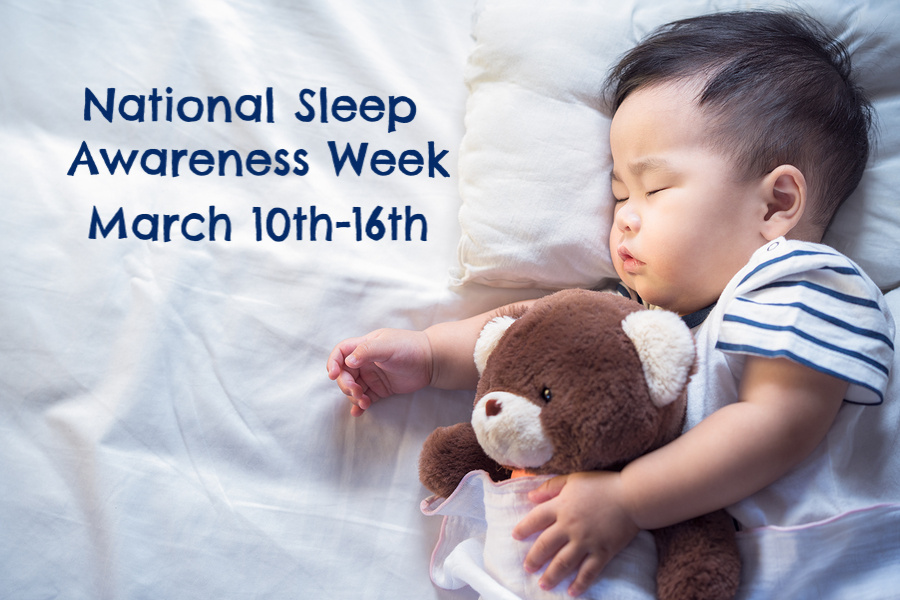By: Lauri Leadley, CCSH, RPSGT- Clinical Sleep Educator|Sleep Coach

Lauri Leadley, Clinical Sleep Educator, President of Valley Sleep Center
March 10th – 16th will be celebrated as National Sleep Awareness Week. The focus of National Sleep Awareness Week is to raise concerns and awareness about sleep. Beginning with the all-important question – are you getting enough sleep?
A majority of my patients want to know how many hours they need to sleep on a daily basis. My simple answer to the question is – “as many as you need to wake up feeling fresh and energized!”
As a professional sleep coach, I know that individual sleep requirements can be different depending on age and individual factors including lifestyle choices.
Having said that, ideally, everyone should aim to get anywhere from 7 – 9 hours of sleep every day.
However, in the hustle and bustle of modern day living, most of us clock a lot less than the needed number of hours necessary for the mind and body to relax and rejuvenate.
Related Article – Why Quality Sleep is Fundamental to Good Health
As a result, many people today suffer from sleep disruptions due to stress. Medical professionals recognize the dangers of stress and its impact on the human body. If stress is keeping you from good sleep, the lack of good sleep, in turn, can compromise your immune system.
A compromised immune system leaves the door open for all kinds of health complications to set in; a weak body is more vulnerable to infections. In addition, the body becomes vulnerable to health complications such as diabetes and heart disease.
Lack of good sleep can also lead to people suffering from insomnia and sleep deprivation, as well as other forms of serious sleep diseases such as obstructive sleep apnea (OSA) which impacts them on a personal and professional level.

Good Sleep for Better Personal and Professional Health
National Sleep Foundation will be celebrating Sleep Awareness Week, March 10th to 16th, 2019. This year’s theme is “Begin with Sleep.” The focus will be on the importance of good sleep health and how it can help individuals achieve their personal, family, and professional goals.
Physical activities require the brain to be sharp and focused. Lack of sleep, however, can impact a person in multiple ways including lack of focus.
When this happens, the body’s ability to respond to activities which require focus such as driving, performing a physical activity or even something like crossing the street or walking up the stairs is impacted and can lead to accidents.
In the elderly, sleep deprivation can lead to insomnia and other sleep disorders. For this reason, poor sleep among the elderly should not be ignored or put away as an age-related issue. However, lack of sleep can impact the young and healthy in similar ways as well.
What most people also fail to recognize is how lack of good sleep affects them personally and professionally. Lack of sleep makes you vulnerable to sleep disorders.
As mentioned above, it also impacts your physical health. Sleep disorders such as snoring, OSA, or restless leg movement disrupt your sleep as well as your partner’s sleep.
At work, a brain that is sleep deprived will not be able to focus and you will experience daytime fatigue – so regardless of how old or young you are, your productivity will drop.
If your mental and physical health are impacted due to poor sleep, it can have a cascading effect on your personal, professional, and family life.
Practice Good Sleep for Today
If you want your body and mind to be healthy, then you need to start sleeping better. Not from tomorrow or a later date – you need to start sleeping better, starting today!
What this means is that you may need to change your lifestyle choices including your diet (drinking soda all day is terrible for you), your sleep habits, amount of physical activity, and reduce mental stressors.
Start by doing the following:
- Sleep at regular times and maintain a sleep routine.
- Sleep in a cool, dark room with no distractions – this means to keep all tech out of your sleeping space.
- Eat healthy (not fast food all week) and exercise on a daily basis.
If however, you suffer from sleep disruptions or notice other symptoms of sleep disease, consult with a professional sleep coach at the earliest.
Valley Sleep Center – We can Help you Sleep Better!
Is poor quality sleep impacting your mental and physical health? If yes, then we at Valley Sleep Center can help you. For a consultation with sleep coach Lauri Leadley, please email us at sleep@valleysleepcenter.com.

